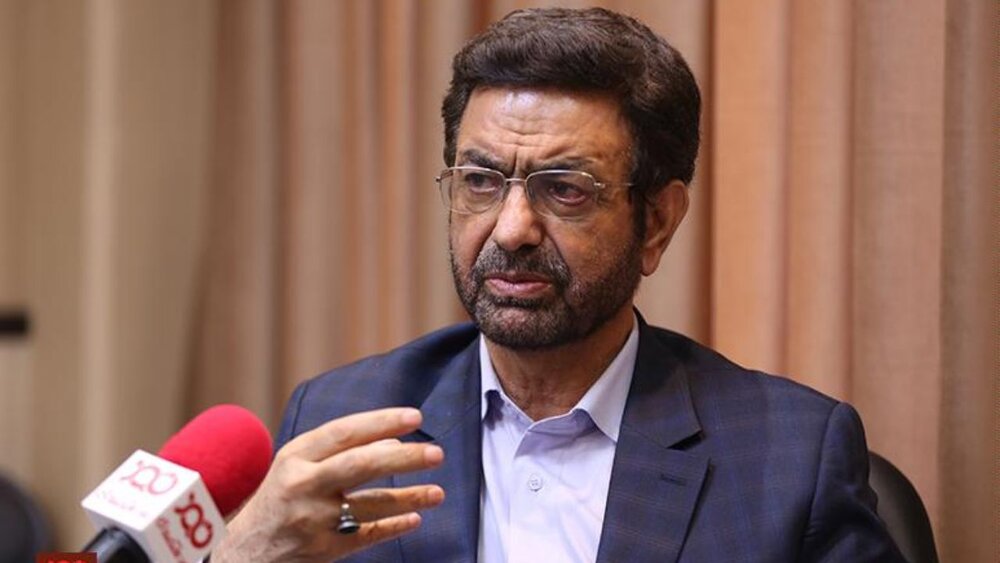Iranian team must only focus on result-oriented negotiations, MP says

TEHRAN- A member of the National Security and Foreign Policy Committee of the Iranian Parliament has said the new round of the Vienna talks, which started on Monday after a five-month break, must prove “fruitful” in lifting sanction on the Islamic Republic.
"The new message of this round of negotiations is that the talks must be fruitful and not as attritional and time consuming as before," Fada-Hossein Maleki said, IRNA reported on Monday.
Maleki added, "In this round of talks, an effort is being made so that the Iranian negotiating team to manage the atmosphere of the talks."
The MP went on to say that the Western media outlets have launched a disinformation campaign to portray Iran as a side which is not serious in the talks.
On the contrary, he said, it is the European and American sides which have never been serious and refused to fulfill their obligations.
The U.S. under former president Donald Trump quit the nuclear deal in May 2018 in violation of UN Security Council Resolution 2231 and returned the previous sanction that had been lifted under the 2015 nuclear agreement and imposed new ones under different pretexts. The European signatories to the nuclear deal, officially called the Joint Comprehensive Plan of Action (JCPOA), also failed to honor their obligation in normalizing economic and financial sanctions with Iran.
The MP from Zahedan also assessed the foreign policy strategy of the new Iranian administration in line that of the parliament.
Maleki reiterated Tehran’s position that the JCPOA is an agreement that has already been concluded and no negotiations are being held on it.
Iran has been insisting that the talks in Vienna must primarily focus on a verifiable lifting of sanctions.
"With regard to the JCPOA, only Iran fulfilled its obligations and none of the signatories fulfilled their obligations, and we witnessed that even some members of the deal did not condemn the U.S. action for withdrawing from this agreement."
Iran remained fully loyal to the JCPOA for a complete year after the U.S. quit the agreement. However, in May 2019 Iran started to gradually lift bans on its nuclear program as the European sides (France, Germany and Britain) failed to compensate Iran for the U.S. sanctions. At the time Iran announced if the Europeans honor their obligations under the agreement, it will reverse its decision.
‘Composition of negotiating team an advantage for Iran’
Iran has sent a 40-member strong team consisting of diplomats as well as experts in financial, monetary, banking, and legal affairs to the Vienna talks, something which Maleki said is an “advantage” for Iran.
To underscore Iran’s emphasis on lifting economic sanctions, the team includes deputy foreign ministers for economic and legal affairs, the deputy governor of the central bank and its former chief, the deputy economy and oil ministers and the economic adviser to Iran’s vice president.
The strategy is being adopted by the Supreme National Security Council and the chief negotiator had to use all the country's capacities so that the West does not have any excuses, MP Maleki said when asked about the composition of the Iranian team.
Maleki, a former diplomat, also said there should be an atmosphere of calm so that the negotiating team can ensure Iran's national interests based on its serious mission.
Mikhail Ulyanov, the Russian diplomat representing his country in the Vienna talks, in a tweet on Monday called the atmosphere both “heated” and amicable.
"Different. Different. Sometimes heated debates, sometimes very amicable discussion. But...the result is...the work will continue from where we left off on 20th June."
According to the New York Times, Enrique Mora of the European Union, who is chairing the talks, said that Iran “recognizes the work done in the past six rounds and the fact that we will be building on that.” But he said that Iran was “insisting on sanctions lifting” immediately.
Iran’s chief negotiator, Ali Bagheri Kani, the deputy foreign minister for political affairs, told reporters after the talks on Monday that Iran is insisting that the United States and its allies promise never to impose sanctions on Iran again.
An important step to keep the negotiations alive, Iran agreed to resume talks on Tuesday in one of three working groups established in earlier rounds — on which sanctions would eventually be lifted by the United States, the Times said.
The other two working groups, on the nuclear issue itself and on implementation and the sequencing of each country’s actions in the event of a new deal, will not resume talks Tuesday.
Mora said the nuclear working group would meet on Wednesday. “There is a sense of urgency” to restore the nuclear deal, he said, but “there is no fixed timeline in my mind.’’
In an opinion article in the Financial Times on November 28, Bagheri Kani said his view that the very term “nuclear negotiations” is itself “rife with error.”
Iran’s first goal, he wrote, is “to gain a full, guaranteed and verifiable removal of the sanctions that have been imposed on the Iranian people.” The talks, he said earlier this month, are “negotiations to remove unlawful and inhuman sanctions.”
